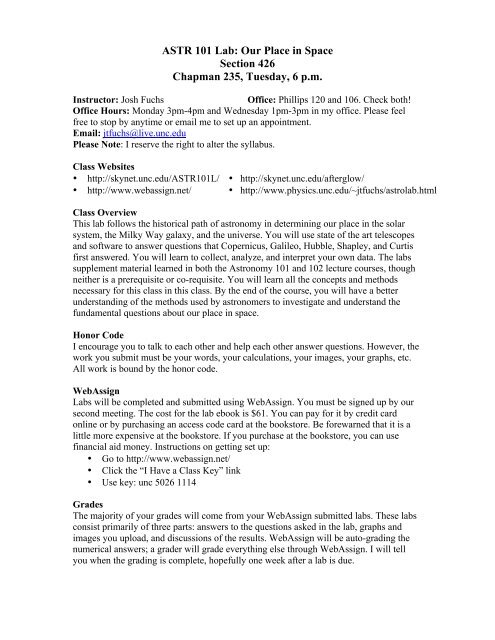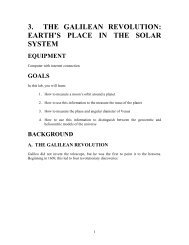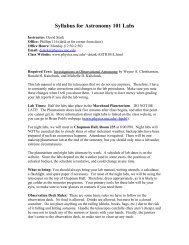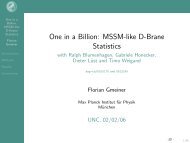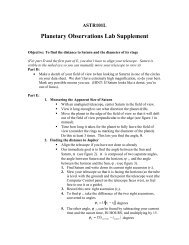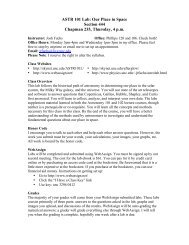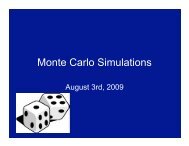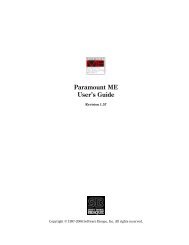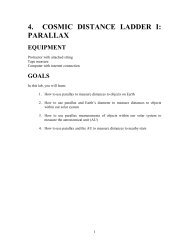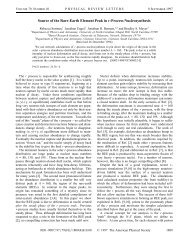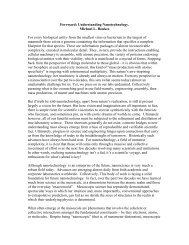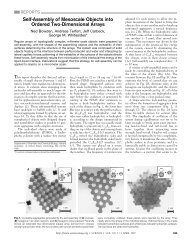ASTR 101 Lab - Department of Physics and Astronomy
ASTR 101 Lab - Department of Physics and Astronomy
ASTR 101 Lab - Department of Physics and Astronomy
You also want an ePaper? Increase the reach of your titles
YUMPU automatically turns print PDFs into web optimized ePapers that Google loves.
<strong>ASTR</strong> <strong>101</strong> <strong>Lab</strong>: Our Place in Space<br />
Section 426<br />
Chapman 235, Tuesday, 6 p.m.<br />
Instructor: Josh Fuchs<br />
Office: Phillips 120 <strong>and</strong> 106. Check both!<br />
Office Hours: Monday 3pm-4pm <strong>and</strong> Wednesday 1pm-3pm in my <strong>of</strong>fice. Please feel<br />
free to stop by anytime or email me to set up an appointment.<br />
Email: jtfuchs@live.unc.edu<br />
Please Note: I reserve the right to alter the syllabus.<br />
Class Websites<br />
• http://skynet.unc.edu/<strong>ASTR</strong><strong>101</strong>L/ • http://skynet.unc.edu/afterglow/<br />
• http://www.webassign.net/ • http://www.physics.unc.edu/~jtfuchs/astrolab.html<br />
Class Overview<br />
This lab follows the historical path <strong>of</strong> astronomy in determining our place in the solar<br />
system, the Milky Way galaxy, <strong>and</strong> the universe. You will use state <strong>of</strong> the art telescopes<br />
<strong>and</strong> s<strong>of</strong>tware to answer questions that Copernicus, Galileo, Hubble, Shapley, <strong>and</strong> Curtis<br />
first answered. You will learn to collect, analyze, <strong>and</strong> interpret your own data. The labs<br />
supplement material learned in both the <strong>Astronomy</strong> <strong>101</strong> <strong>and</strong> 102 lecture courses, though<br />
neither is a prerequisite or co-requisite. You will learn all the concepts <strong>and</strong> methods<br />
necessary for this class in this class. By the end <strong>of</strong> the course, you will have a better<br />
underst<strong>and</strong>ing <strong>of</strong> the methods used by astronomers to investigate <strong>and</strong> underst<strong>and</strong> the<br />
fundamental questions about our place in space.<br />
Honor Code<br />
I encourage you to talk to each other <strong>and</strong> help each other answer questions. However, the<br />
work you submit must be your words, your calculations, your images, your graphs, etc.<br />
All work is bound by the honor code.<br />
WebAssign<br />
<strong>Lab</strong>s will be completed <strong>and</strong> submitted using WebAssign. You must be signed up by our<br />
second meeting. The cost for the lab ebook is $61. You can pay for it by credit card<br />
online or by purchasing an access code card at the bookstore. Be forewarned that it is a<br />
little more expensive at the bookstore. If you purchase at the bookstore, you can use<br />
financial aid money. Instructions on getting set up:<br />
• Go to http://www.webassign.net/<br />
• Click the “I Have a Class Key” link<br />
• Use key: unc 5026 1114<br />
Grades<br />
The majority <strong>of</strong> your grades will come from your WebAssign submitted labs. These labs<br />
consist primarily <strong>of</strong> three parts: answers to the questions asked in the lab, graphs <strong>and</strong><br />
images you upload, <strong>and</strong> discussions <strong>of</strong> the results. WebAssign will be auto-grading the<br />
numerical answers; a grader will grade everything else through WebAssign. I will tell<br />
you when the grading is complete, hopefully one week after a lab is due.
There will be a quiz at the beginning <strong>of</strong> every class over the lab we will do that day. The<br />
quizzes are designed to test that you conceptually underst<strong>and</strong> the purpose <strong>and</strong> goals <strong>of</strong> the<br />
lab. The sum <strong>of</strong> all your quiz scores will be equivalent to one lab grade. If you are late for<br />
lab or miss a lab, you will get a zero for that quiz. No quizzes will be dropped. There will<br />
be two opportunities for extra quiz points that will be discussed during class.<br />
Grading is done on a curve. The curve is based on the number <strong>of</strong> points you receive for<br />
the lab. Your grade will depend on how you do relative to the rest <strong>of</strong> the class. The<br />
number <strong>of</strong> st<strong>and</strong>ard deviations you are away from the mean will determine your letter<br />
grade for that lab. The grade distribution will be as follows:<br />
Number <strong>of</strong> St<strong>and</strong>ard Deviations from Mean<br />
> +0.5 A<br />
-0.5 +0.5 B<br />
-1.5 -0.5 C<br />
-2.5 -1.5 D<br />
< -2.5 F<br />
Letter Grade<br />
After the labs are graded, I will post the distribution on WebAssign so you can keep track<br />
<strong>of</strong> where you st<strong>and</strong>. Keep in mind that a 90 is not necessarily an A, 80 is not necessarily a<br />
B, etc. Some <strong>of</strong> the labs by design will have low numerical averages. Please do not fret<br />
about your grade until you see the curve.<br />
Late Policy<br />
All labs must be submitted by noon on Thursday the week after the lab. This should give<br />
you ample time to meet with me if something does not work or you have questions. I will<br />
not answer questions about the previous lab on the day <strong>of</strong> our next lab. The telescopes we<br />
use are PROMPT, your work should be as well. Late work will not be accepted.<br />
However, sometimes life does not go as planned. If something happens, please let me<br />
know <strong>and</strong> we will work something out.<br />
Laptops<br />
Bring a computer with you to class every week. It is your responsibility to have access to<br />
a computer capable <strong>of</strong> doings these labs.<br />
Schedule <strong>of</strong> <strong>Lab</strong>s<br />
Date<br />
<strong>Lab</strong><br />
24 January Orientation<br />
31 January <strong>Lab</strong> 1 **At Moorehead Observatory**<br />
7 February <strong>Lab</strong> 1: Introduction to Skynet<br />
14 February <strong>Lab</strong> 2: Earth <strong>and</strong> the Seasons<br />
21 February <strong>Lab</strong> 2: Earth <strong>and</strong> the Seasons<br />
28 February <strong>Lab</strong> 3: The Galilean Revolution<br />
13 March <strong>Lab</strong> 4: The Cosmic Distance Ladder I<br />
20 March <strong>Lab</strong> 5: The Cosmic Distance Ladder II<br />
27 March <strong>Lab</strong> 6: The Great Debate<br />
3 April <strong>Lab</strong> 7: Dark Matter<br />
10 April <strong>Lab</strong> 8: Hubble’s Law


